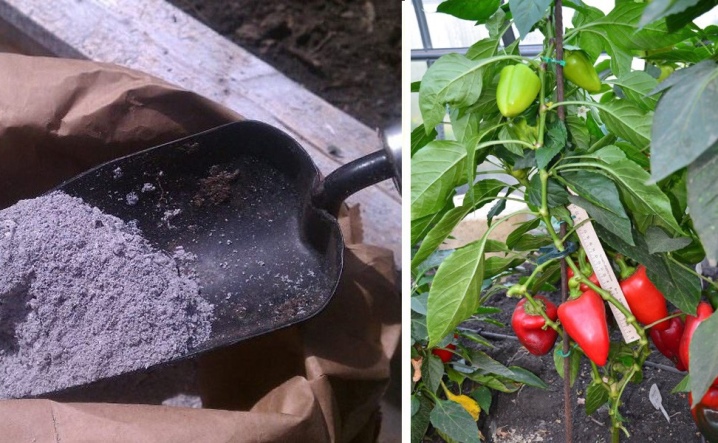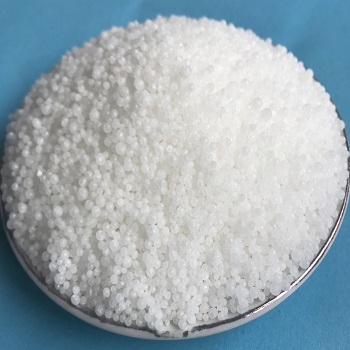Introduction
The use of organic fertilizers in gardening is more than just a popular fad; it is a necessary part of sustainable agriculture. Organic fertilizers differ from synthetic ones in that their nutrients come from natural sources, which not only support plant growth but also improve soil health and increase biodiversity.
But what exactly makes a fertilizer “organic”? Basically, these fertilizers are made up of materials that are either mined or derived from living organisms. Examples include compost, animal manure, plant residues, and naturally occurring minerals like phosphate and greensand. For such substances to be considered organic, they should not have been treated with any synthetic additives or chemicals.
When it comes to growing peppers specifically, the advantages of using organic pepper fertilizer are hard to beat. According to experts such as Dr. Linda Chalker-Scott (Extension Horticulturist & Associate Professor at Washington State University), organic fertilizers release nutrients slowly and enhance soil structure — both factors that contribute towards healthier plants. “Organic fertilizers promote plant resilience by fostering healthy soil ecosystems,” explains Dr. Chalker-Scott. Therefore, through this method all essential elements required for maximum development will be provided while ensuring robust growth as well as abundant harvest where useful natural mineral resources are utilized effectively.
Key Benefits of Organic Fertilizers for Pepper Plants
Organic pepper fertilizer provides numerous benefits not only for the plants themselves but also for their surrounding environment. One major advantage is improved soil health and structure brought about by organic fertilisers . Soil aeration gets better due to presence of organic matter contained in these inputs which also enhances water retention thereby facilitating strong roots establishment leading into healthier plant growth.
According to Dr Elaine Ingham who is an expert on soils biology as well founder Soil Foodweb Inc., she says that “Organic fertilizes feeds the soil life hence contributing towards its structure.” The microorganisms found in the earth breakdowns matters from organisms living underground thus helping keep up fertility levels along with maintaining good soil physical condition.” This activity ensures that more nutrients are available to the plants at the right time hence increasing pepper yields and quality. Nutrients are released slowly in this case which matches growth demand rate of peppers thereby reducing risks associated with nutrient burn caused by fast release synthetic fertilizers.
Furthermore, chemical runoff can be significantly reduced through use of organic based garden inputs. Chemicals contained in most conventional fertilizers are easily washed away into nearby water bodies leading to pollution as well destruction aquatic life forms drinking water sources get contaminated too. On the other hand organic alternatives have low solubility level therefore they bind tightly onto soils surface preventing them from being carried away by rain or irrigation water thus saving environment from pollution caused by excess chemicals entering ecosystems through runoffs. “Organic fertilizers play a major role in sustainable agriculture because they do not contribute much towards run-off” says Dr Chalker-Scott..
Therefore, it is clear that organic fertilizers do more than just increase crop productivity and healthiness; they also promote sustainable gardening practices. By going organic, gardeners are able to work with nature instead of against it thereby ensuring long term success while still supporting ecological balance between cultivation activities and natural diversity.

Selecting the Right organic pepper fertilizer
Choosing the right organic pepper fertilizer means knowing what kinds are available and how each one fits with your particular plants. There are three main types of commonly used organic fertilizers: compost, animal manures, and plant-based fertilizers. Each has its own unique qualities and benefits.
Compost is made from decomposed materials like leaves, kitchen scraps, and grass clippings; it is nutrient-rich and improves soil structure. Animal manures – such as cow, chicken or horse manure – provide nitrogen among other nutrients but must be well-composted so as not to burn plants with high ammonia levels. Plant-based fertilizers like alfalfa meal, cottonseed meal or seaweed extracts may have fewer nutrients but they possess disease-suppressing properties and release nutrients slowly.
When selecting a fertilizer, consider nutrient balance, soil type and growth stage of the plants. “You need to balance what you add with what your soil can already offer,” explains Dr Jeff Gillman, author and horticulture professor. “Over-fertilizing can be just as bad as under-fertilizing.” Therefore testing the soil in order to find out current nutrient content is necessary.
Additionally reading labels on fertilizer products is important. Look for the OMRI (Organic Materials Review Institute) seal which indicates that product meets strict organic standards appropriate for use in organic gardening. Labels should also show N-P-K (Nitrogen-Phosphorous-Potassium) ratios that help choose a product matching growth needs of your plant(s). For peppers balanced or slightly higher phosphorus content can encourage better fruiting.
By carefully selecting the correct type(s) of organic pepper fertilizers based upon specific requirements determined by both soils tests results AND observations made during previous growing seasons; one will achieve maximum growth rates along with increased yields while at same time insuring overall good health resulting into successful pepper harvests year after year.
Methods of Using Organic Fertilizer for Peppers
Using organic fertilizer for peppers in the right way is essential if you want them to grow healthily and produce abundant harvests. Knowing how to apply fertilizer effectively can greatly improve plant performance.
To begin with, it is necessary to understand when and how much of a particular type of organic fertilizer should be applied. At the time of planting, the soil should be supplemented with a fertilizer so that roots can take hold easily. During growth period, side dressing (i.e., applying around base) serves as continuous supply of nutrients which is vital during flowering stage till fruiting stage.
Organic fertilizers need more frequent light applications than other types according to Dr. Bethke who is a plant scientist.“Frequency and timing are critical with organic fertilizers. You should apply a light amount more frequently, as organic fertilizers release nutrients over time.” This means that additional amounts may be required for peppers every four to six weeks depending on growth rates observed or results from soil tests done.
Soil tests are very important as far as adjusting your fertilizer application methods is concerned.Testing helps one know what exactly he/she needs in terms of nutrient requirement by telling you content levels and PH within the soil which affect availability of these elements.Thus if there’s any deficiency indicated by these tests then change either type used or quantities added.
The method used when applying matters too.Basically broadcasting followed with light tilling or watering would incorporate without necessarily disturbing root systems but ensuring even distribution across entire patch on ground where pepper plants are grown.Another option could be directly putting liquid ones into soil or spraying on leaves if immediate response required.

Common problems and solutions in organic fertilization.
Organic fertilization is good for pepper plants. However, it may have some problems that can affect growth and yield. Therefore, getting to know these challenges and finding ways of dealing with them is very important for healthy plants.
One challenge that farmers face during organic fertilization is nutrient deficiencies. Even though they use this type of fertilizer, their plants still lack some nutrients. In most cases organic manures tend to release plant nutrients slowly over time which may not correspond with fast growing plants’ immediate requirements. “If you see signs like yellow leaves or stunted growth as a result of nutrient deficiency, consider supplementing your soil with specific organic amendments such as bone meal (for phosphorous) or blood meal (for nitrogen),” says Dr Neil Bell who is a community horticulturist.
Another risk associated with the application of natural manure is over-fertilizing the crops leading into burning up of nutrients within them causing death especially when not done properly; thus scorched-like appearance on leaves coupled by ceased development can be observed too. This can be avoided by following instructions on the recommended rates at which they should be applied alongside watching how plants respond after each dose so that adjustments are made accordingly including volume and frequency changes if need be lest excess element increase occurs thereby causing plant death through nutrient burn.
Poor growth even after enough fertilization is also among other challenges experienced by farmers while using organic fertilizer in their farms for growing peppers. The problem might not necessarily lie with soil nutrition but may rather hinge on different factors such as unhealthy soils; insufficient watering or illnesses affecting them underground. Don’t just focus on applying more manure but also test your soil structure & drainage levels plus ensuring consistent watering practices besides looking out for pest or disease attacks which could have an effect towards overall wellness of these plants stated Dr Bell.
To address these difficulties in fertilizer application among gardeners, there should be a holistic approach towards care of plants. This involves regular soil testings, accurate application rates of fertilizers as well as integrated pest control methods alongside disease management strategies. By being proactive on these shared hurdles gardeners can be able to realize strong healthy productive organic-fed-up peppers in their gardens.
Conclusion
It is not only a matter of gardening but it is also about sustainable and healthy food production when you choose to use organic pepper fertilizer. The effects on the earth as well as the quality of crops are immense and positive with more and more gardeners going green.
Finally, both newbies and experts in gardening should opt for organic fertilizers for their pepper plants’ growth improvement and ecosystem health contribution. According to Dr Elaine Ingham, “Going organic signifies a move towards recovering soil health which in turn leads to healthier plants themselves and those who eat them.”
You can get the best out of them while making sure they last long if you follow these steps about selecting applying managing organic fertilisers bounteousness sustainable harvest will be yours. Organic gardening success depends on your ability to work with nature in order to understand and respond correctly to the innate growing needs of each plant type within its environment.
Here are three references about organic pepper fertilizer:
- Utah State University Extension provides a detailed guide on selecting and using organic fertilizers, emphasizing the importance of soil testing to determine specific nutrient needs and detailing how to calculate the correct amount of fertilizer. This resource is particularly useful for gardeners looking to optimize their use of organic fertilizers in various garden and landscape settings.
- New Mexico State University offers a publication on growing chile peppers, which shares valuable information on the climatic requirements for peppers, soil preparation techniques, and specific recommendations for organic fertilizer application. This guide is beneficial for understanding the unique needs of chile peppers, a common variety of pepper cultivated by many organic gardeners.
- University of Florida IFAS Extension provides an analysis on the effects of different nitrogen, phosphorus, and potassium (N-P-K) ratios on pepper plants, using data from various studies. This source discusses how environmental conditions and different irrigation methods can impact the effectiveness of fertilizers and how to adjust applications accordingly for optimal plant growth.







